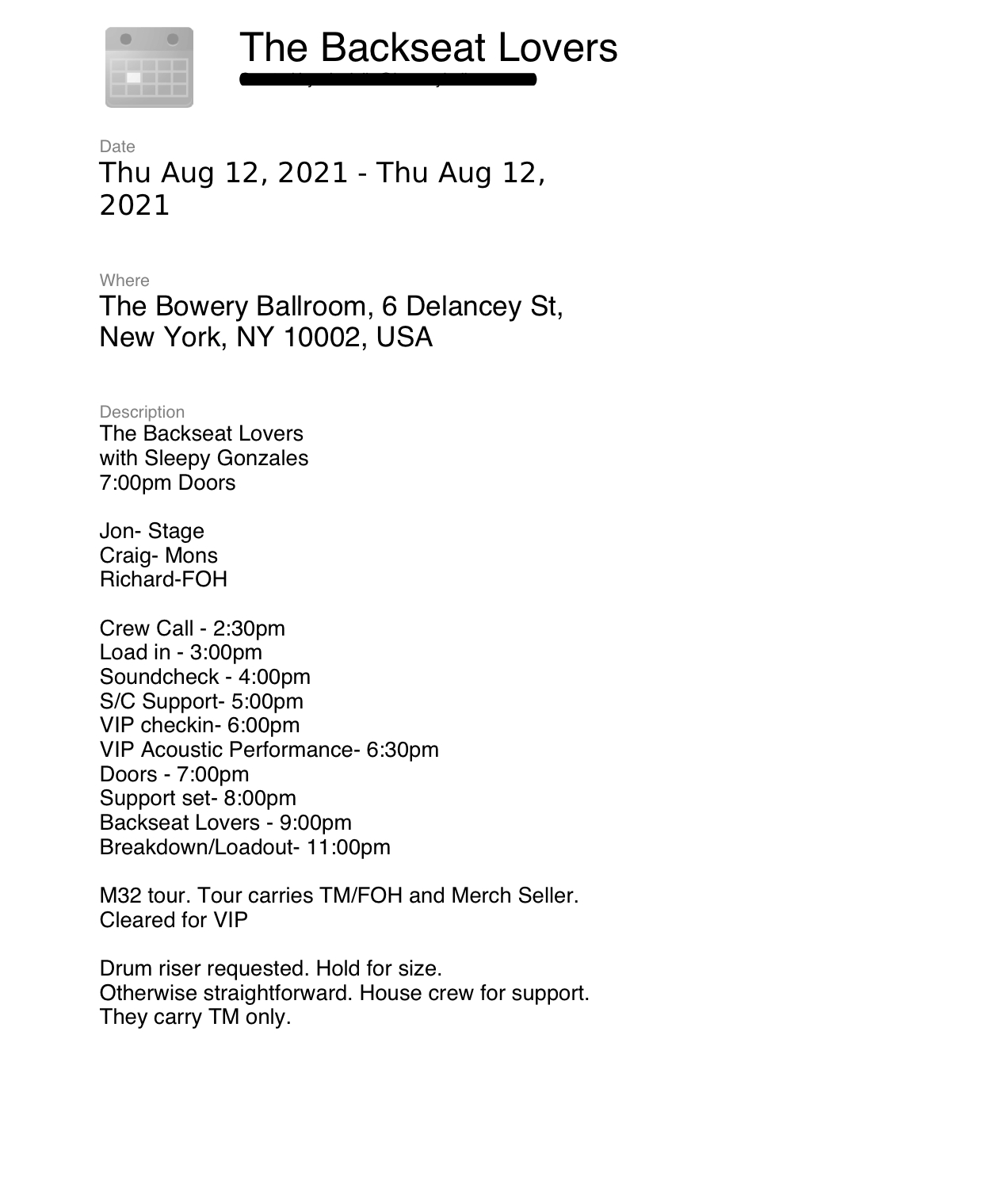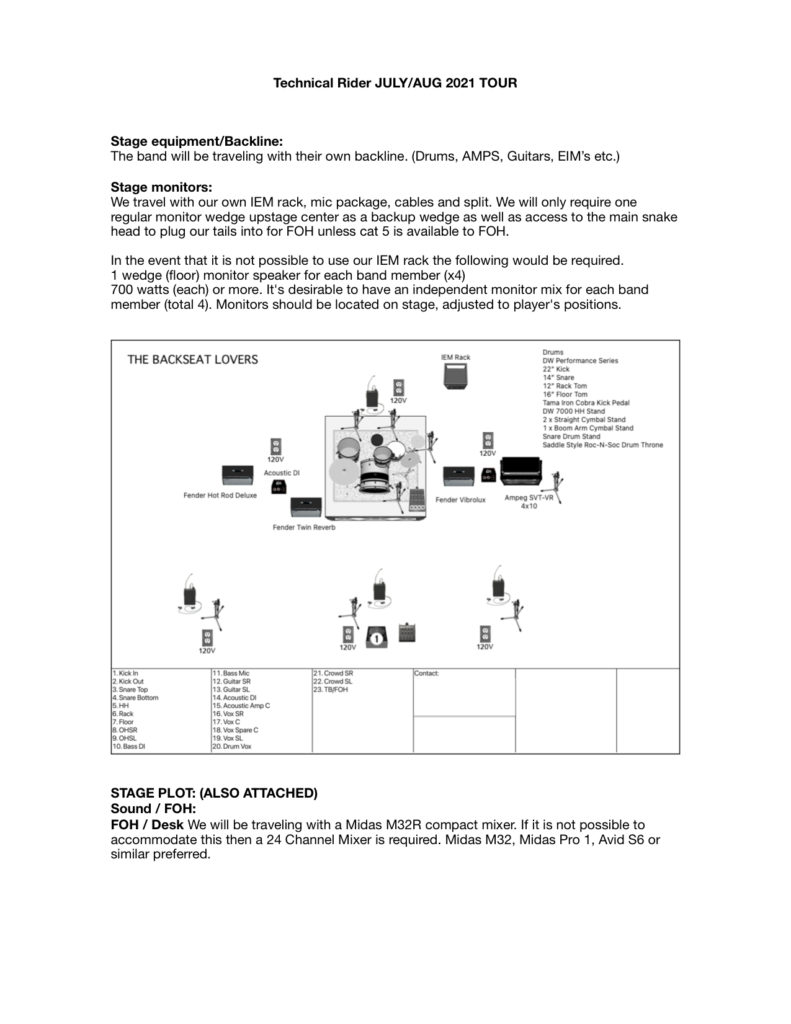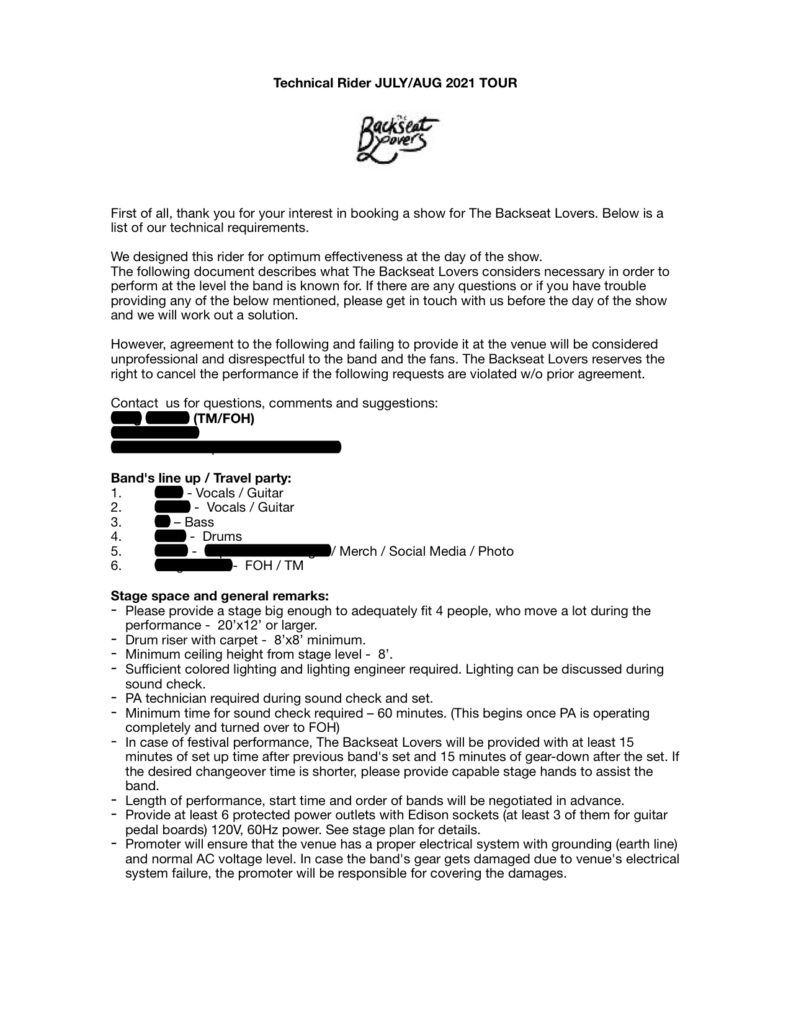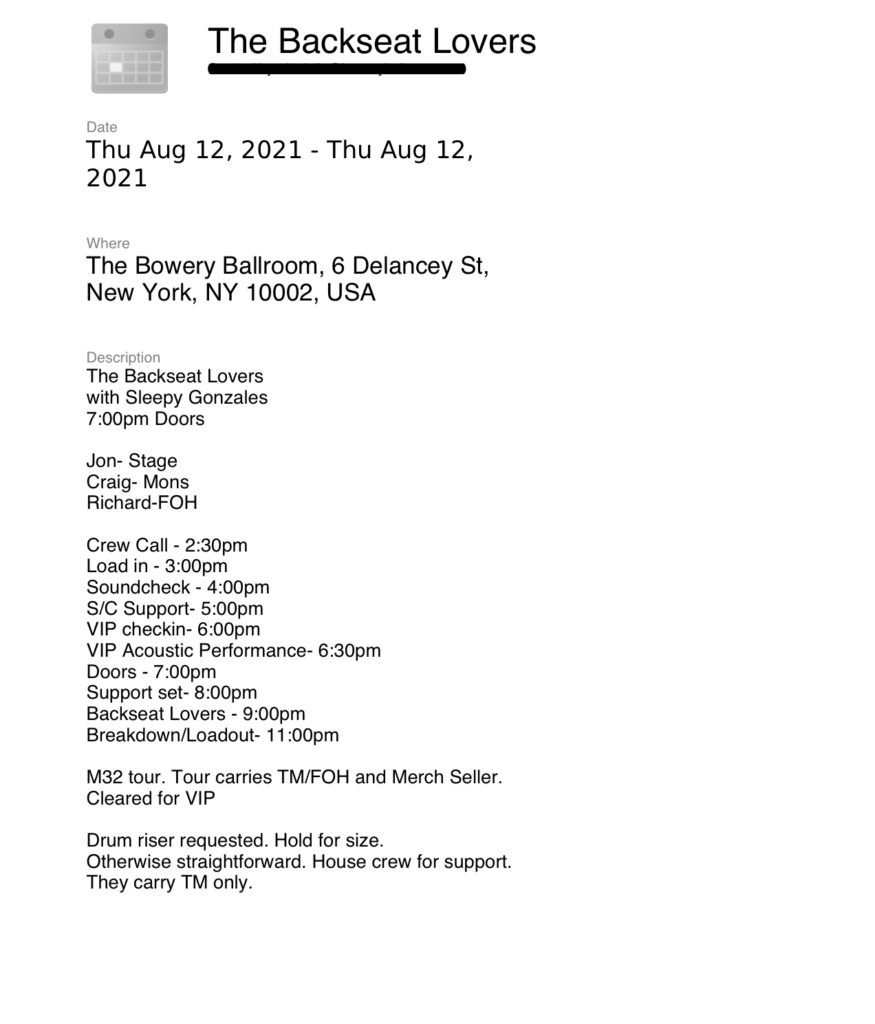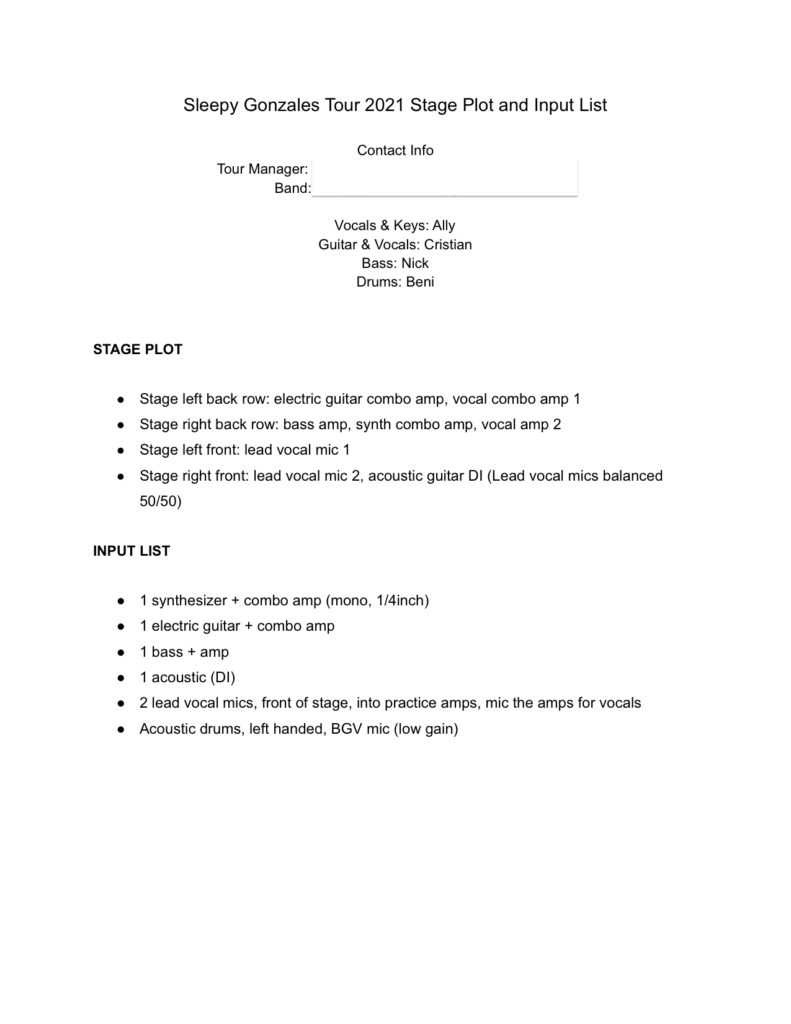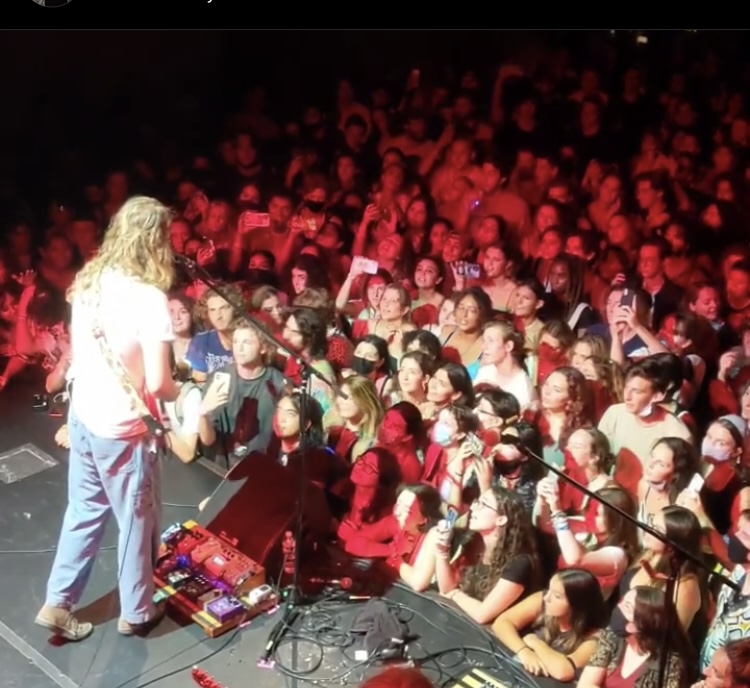This Show Must Go Off Episode 5
What a sigh of relief, we finally have our first full-capacity concert event under our belts. Like many venues, we got excited when the pandemic infection numbers were taking a turn for the better, and we finally felt as though it was safe for us to reopen.
Mid-July the Delta variant shook all of that up, and our first two shows of the season were postponed once again.
Our venue decided to take a proactive approach and made the decision to allow only vaccinated patrons, staff, and performers into our events. New York City rolled out a similar mandate a few days later and we pushed ahead. Many artists and tours welcomed the news, including The Backseat Lovers. A few decided it is currently too risky to tour, and a smaller percentage was unwilling to support the new guidance. In those instances, the performances were either canceled or postponed.
The tour manager for the Backseat Lovers sent out their Advance email about 3 weeks ahead of their performance. * For more information about what an Advance is, and how to create a Rider, check out this great post: How to Make An Awesome Audio Rider
The band’s rider had everything I needed to know about the tour. It was professional, concise, researched, and well written. I got a great sense of the band’s personality and what to expect.
Audio would be self-contained, and the headliner would be mixed on an M32 desk. House would provide a floor wedge as a backup, drivelines to the PA, a drum riser, and power for the artist’s backline.
Artist would use our LD and our house light rig.
There would be a Meet & Greet experience that would take place 1 hour before doors.
Everything about this advance read like a classic Bowery show, and I began to feel excited.
On the day of show we coned off parking and the band pulled up with their van and trailer. Everything was professionally packed into road cases on caster wheels, which made load-in a breeze.
I needed to sort out PA drivelines through the Avid desk. Several factors made an external console management system like XTA an inappropriate solution for our needs and budget. Guests would need to pass through our console and I wanted to make sure they could do so as transparently as possible.
Avid’s “Input Direct” turns a normal Input or Output into a line-level pass through, bypassing any channel processing like EQ or compression, and routes the signal from the Top of Channel pickoff directly to the fader. The 5 channels of our PA and the Matrix Outputs were set Input Direct. The Artists’ engineer was satisfied with that solution and fed us the drivelines through his stage box into our split snake. Our stage manager and monitor engineer assisted putting the artists’ mics on stands and running cables. All of the bands’ 4 members were using in-ear monitors that the tour carries. Right on schedule, 60 minutes after load-in the engineer tuned the room, and the band ran through a few songs.
The house crew managed the opening band. No stage plot was given, but we did have an instrument list in the advance.
Their vocal mics would pass through guitar amplifiers and that would be mic’d to achieve their desired effect. The vocal amps and the vocal mics needed to be carefully positioned around the stage to avoid bleed from the other instruments. It was an acoustic challenge, to say the least. Speakers in guitar amplifiers tend to be less directional than a stage monitor or PA speaker and have limited frequency response. Depending on the overdrive or tonal characteristics of the amp, you could have a greater potential for feedback. Everything was close mic’d as much as possible and the decision was made to aux feed the subs and front fills of the PA for the greatest control.
With soundcheck complete, the Meet and Greet experience took place in front of the stage and was completely unplugged. It consisted of acoustic performances of songs with a Q&A segment for about 50 fans, vaccinated, masked, and distanced. The fans were allowed to remain in the room while we opened doors to the rest of the ticket holders.
I feel confident that the opener sounded as good as we could make them, and I resonated with Samantha Potter’s thoughts in her interview where she mentions “sometimes functioning is better than beautiful.”
Once the Backseat Lovers hit I was able to breathe a long-held sigh of relief. We had done it. We made a show happen, with a completely new FOH desk, new lights and rigging, and a whole new set of rules due to Covid. I felt incredibly proud of all of my staff, and impressed by the artists’ FOH engineer Greg Downs, whose mix sounded energetic, balanced, and reinforced the talented band on stage.
A sign of any professional production, the band and crew started breaking down their gear shortly after their set, in favor of a quick and easy load out.
The whole night felt so organic and happy, and all the wonderful quirky parts of putting together concert events.
I look forward to the season to come and hope that our industry can offer a sustainable way to tour that values personal wellness, and that we can all support each other to continue to have conversations around vaccination and how important it is to our industry.
